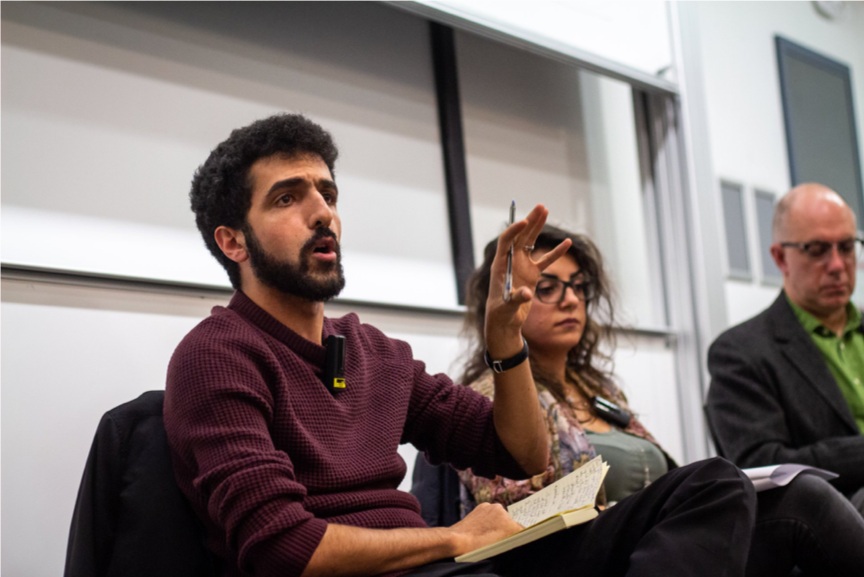Why should you return to a place that no longer welcomes you?
Jacob Loose, MA International Studies and Diplomacy
Photo Credit: Tobias Schreiner, http://www.tobias-schreiner.com
Speaking at a SOAS Syrian Society event on ‘Reconstruction, Politics, and Justice in Post-War Syria’, Mr Ibrahim Olabi said that for ordinary Syrians there is “no real, genuine choice between leaving and staying”. If they remain, they will have to join the Syrian army and potentially follow orders to attack civilians. As a consultant for the United Nations High Commissioner for Human Rights in Syria, and founder of the Syrian Legal Development Programme, which provides legal training to Syrian NGOs, Olabi is well qualified to make this assertion.
Olabi went on to argue that when the media and host governments suggest some parts of Syria are now safe for refugees to return, they are ignoring the reality on the ground. Fellow speaker and Syrian architect, Sawsan Abou Zainedin, made a powerful case, explaining how the Syrian government has used this civil war to start the process of rebuilding. She argues the rebuilding process has deliberately excluded refugee populations, as laws have passed to allow many refugee-owned properties to be ‘redeveloped’. It is understandable that Syria’s neighbouring countries, which have taken in the most refuges, will strongly make the argument that, as soon as Syria is safe, populations should return home. However, returning home to find your apartment block bulldozed, and being forced to join the Syrian army does not constitute a safe return.
While both speakers built strong arguments about why return was impossible at this stage for millions of Syrians, it was the reaction of the audience that was the most powerful. A number of audience members introduced themselves by the job they had been doing in Syria and were visibly moved by these presentations. One said that they “don’t know what to return to” and questioned why they should return to a place that no longer welcomes them.
I was reminded of this audience reaction when I more recently attended an event on the Rwandan diaspora community hosted by the International Organisation for Migration. This was the first in depth study of the Rwandan population in the UK, many of whom will have initially fled the country during the 1994 genocide. At this event, the project’s leaders were explicitly welcoming Rwandans to return home and contribute their specialised professional experience. There was a large student population in the audience with many viewing Rwanda as their homeland despite growing up in the UK. One student asked for support, wondering how she could go back and make a positive difference.
The Rwandan diaspora community can perhaps provide an example for Syria’s future. If home can one day be made a welcoming and safe place again, skilled professionals will be willing to return and play a role in the reconstruction process.
